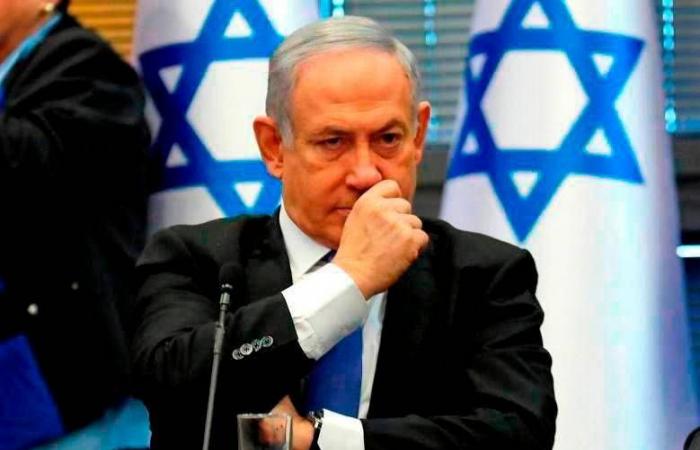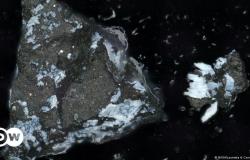
06/23/2024
Israeli Prime Minister Benjamin Netanyahu affirmed this Sunday that the intense phase of fighting against the militants of the Palestinian Islamist movement Hamas in the city of Rafah, in southern Gaza, is about to end.
“The intense phase of fighting against Hamas is about to end. It’s about to end. This does not mean that the war is about to end, but the intense phase of the war is about to end in Rafah,” Netanyahu said in an interview with the Israeli channel Channel 14.
Despite Netanyahu’s words, this Sunday explosions were heard again in the surrounding area and in the center of the city of Rafah, a Palestinian enclave where the Israeli army has been carrying out a ground offensive since May 7.
There were also bombings in Gaza City, in the north, and it was reported that some tanks fired on the Nuseirat refugee camp in the center.
Read also: What is the Government’s plan for the 50 Palestinian children victims of the war that it will bring to Colombia?
The Israeli army justified the action by stating that fighter jets attacked “dozens of terrorist targets in the Gaza Strip, including military structures and infrastructure”, in targeted operations in Rafah.
“Terrorists were eliminated in hand-to-hand combat and by sniper and drone shots in the center of the territory“added the army.
For his part, Israeli Defense Minister Yoav Gallant traveled to the United States on Sunday to engage in what the Israeli government classified as “crucial” negotiations on the war unleashed against the Palestinian Islamist movement Hamas in the Gaza Strip. following the group’s attacks on October 7, as well as the recent tensions in Lebanon that Israel is having with the pro-Iranian group Hezbollah.
Gallant’s mission entrusted by Israeli Prime Minister Benjamin Netanyahu is to accelerate the process of unblocking the shipment of weapons and ammunition by the United States, its historical ally, after criticizing the delay in supply in recent months.
Netanyahu assured his cabinet that this “disagreement” with Washington –government that criticizes the high number of civilian deaths in Gaza– will be settled soon.
“In light of what I have heard in recent days, I hope and believe that this issue will be resolved in the near future,” The prime minister stated, implying that the intense phase of fighting against Hamas in the Rafah sector is “about to end.”
”Our ties with the United States are more important than ever. Our meetings with American officials are crucial to the warGallant said in a statement.
It should be taken into account that Israel’s northern border with Lebanon is currently experiencing an escalation of violence between the Israeli army and the fundamentalist group Hezbollah, an ally of Hamas. This escalation raises fears of an expansion of the conflict in the region.
The movement, also pro-Iran, said it had attacked two military positions in northern Israel with armed drones, in response to the death of the head of an allied Islamist group.
Netanyahu under pressure
Meanwhile, the Israeli army acknowledged this Sunday having violated operational protocols during an incursion in Jenin, the occupied West Bank, in which soldiers tied an injured Palestinian to the hood of a military vehicle.
The images went viral and provoked a wave of indignation that further fueled demonstrations against the current government of Israel.
In fact, more than 150,000 people, according to the organizers, participated yesterday Saturday in a demonstration in Tel Aviv cagainst the Netanyahu government, calling for early elections and the return of the hostages.
”The only way to achieve change here is to remove this government, remove the extremists,” said Maya Fischer, a 36-year-old protester, during the procession, the largest since the start of the war.
Negotiations for a ceasefire are deadlocked, and Netanyahu insists he will continue.to war until the destruction of Hamas, considered a terrorist group by Israel, the United States and the European Union.
It should be remembered that the war between Hamas and Israel began on October 7 when Hamas commandos They stormed southern Israel and killed some 1,194 people, most of them civilians, according to an AFP count based on official data.
They also kidnapped 251 hostages, of whom 116 are still held in Gaza, and among whom 41 would have died, according to the Israeli army.
In response, Israel launched a military offensive in the Gaza Strip, ruled by Hamas since 2007, and so far 37,598 people have been killed, mostly civilians. according to the Ministry of Health of the Hamas-controlled Palestinian government.
In the enclave some 2.4 million people on the verge of famine, according to the UN. ”There are no vegetables or fruit. There are no vitamins. When you get sick, you stay in bed for two or three weeks to recover”deplored Umm Siraj al Balawi, a 33-year-old mother in the Jabalia refugee camp in the north.





